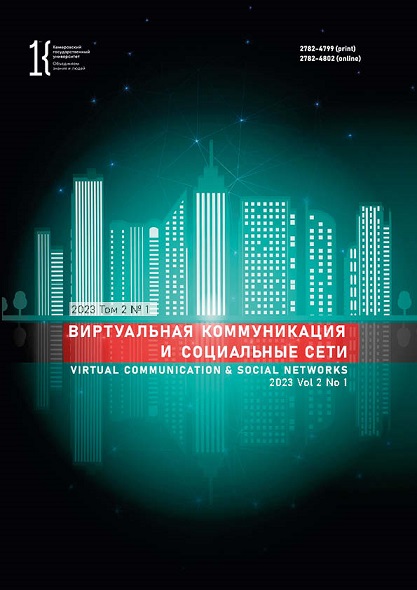Moscow, Russian Federation
Moscow, Russian Federation
The ideologeme is responsible for the category of interpersonality in the political discourse. The authors studied ideologemes in blogs published on the Yandex.Zen platform to identify their role in the discursive modeling of the social and personal opinions of the blogger, the recipient, and the political referents. The category of interpersonality revealed two models associated with the transformation of meaning. The first group was connected with recontextualization and included mocking, comparison, and referent replacement. The second group transformed the form and structure of the intentional component of the meaning by adding or replacing an element, as well as by demetaphorizing or secondary metaphorization.
ideologeme, interpersonality, proximity, engagement, Internet communication, political communication
1. Bakhtin M. M. Questions of literature and aesthetics. Moscow: Khudozhestvennaya literatura, 1975, 504. (In Russ.)]
2. Bakhtin M. M. Problems of Dostoevsky's poetics. St. Petersburg: Azbuka, 2016, 416. (In Russ.)]
3. Dubin B. V. Essays on the sociology of culture. Favourites. Moscow: Novoe literaturnoe obozrenie, 2001, 912. (In Russ.)]
4. Katyshev P. A., Ivanov P. K. Evaluation of communicative phenomena in rhetorical criticism of a blogger: towards an interpersonality of linguistic axiology. Linguistics as a Form of Life, eds. Katyshev P. A., Bulgakova O. A., Ignatova Yu. S. Kemerovo: KemSU, 2022, iss. 5, 103-131. (In Russ.)]
5. Malysheva E. G. Ideologem as lingo-cognitive phenomenon: definition and classification. Political Linguistics, 2009, (4): 32-40. (In Russ.)] https://elibrary.ru/lkfzkn
6. Nakhimova E. A. Ideologem Stalin in contemporary mass media. Political Linguistics, 2011, (2): 152-156 (In Russ.)] https://elibrary.ru/nxskyl
7. Chudinov A. P. Political Linguistics. Moscow: Flinta: Nauka, 2012, 256. (In Russ.)]
8. Hyland K. Constructing proximity: relating to readers in popular and professional science. Journal of English for Academic Purposes, 2010, 9(2): 116-127. https://doi.org/10.1016/j.jeap.2010.02.003


















